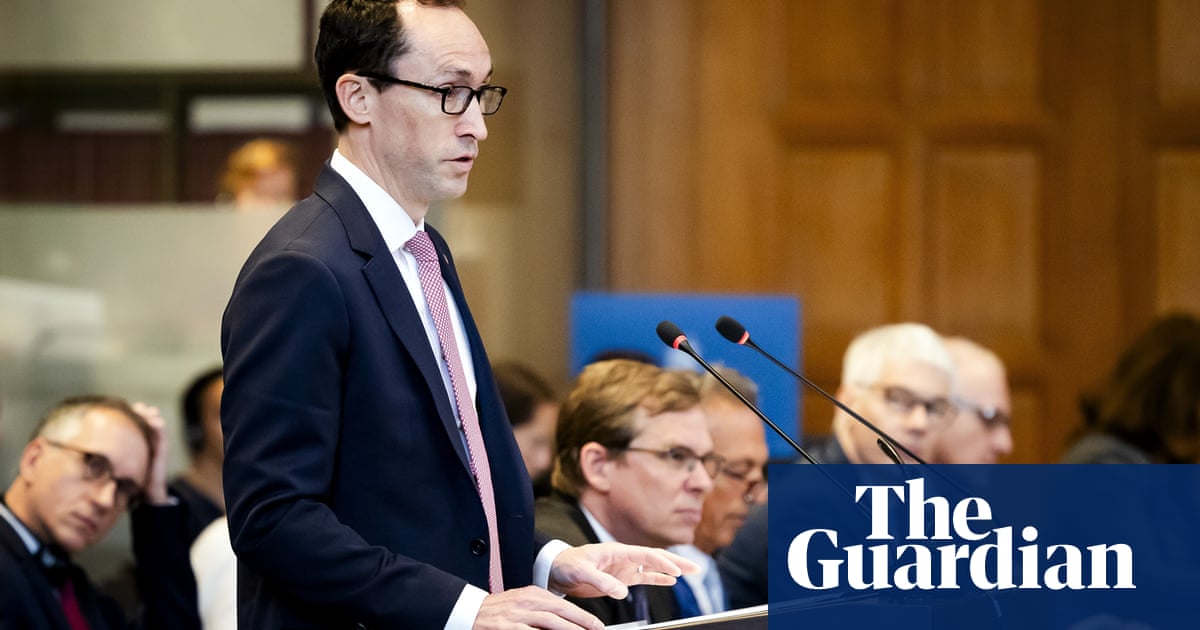The US is treading the path followed by democracies that descended into authoritarianism and dictatorship, former ambassadors to countries that underwent autocratic takeovers have warned.
At a panel discussion held to mark Donald Trump’s first 100 days in office, four ex-heads of American embassies in countries that had experienced swings away from democracy said the current domestic political landscape felt eerily familiar and was pervaded by a “climate of fear” deliberately created to make opponents “back off”.
The four – who served in Russia, Ukraine, Zimbabwe and Nicaragua – were addressing a panel discussion in Washington entitled “Hey wait! We’ve seen this movie before: How democracies descend into dictatorship.”
They were among more than 200 retired US ambassadors and diplomats who signed an open letter calling for urgent action to challenge what they called Trump’s “assault on democracy”.
“We swore to support and defend the Constitution against all enemies, foreign and domestic. Foreign and domestic. None of us thought the second part of that phrase would ever come into play – until now,” the signatories wrote.
Asserting that US global power and leadership was underpinned by a “moral foundation”, they added: “That moral foundation is now in grave danger. The challenge comes from within, as President Trump and his administration have assaulted the pillars of our democracy here at home and our strength around the world.”
Eric Rubin, a Russia specialist and former acting ambassador to Moscow, said the early phases of Trump’s second presidency had parallels with Vladimir Putin’s takeover of Russia in the early 2000s, when a free and open democracy that followed the breakup of the Soviet Union was crushed.
He drew comparisons with Trump’s attempts to intimidate the media with multibillion-dollar lawsuits, saying the parallel was “very direct”.
“When the KGB took over in Russia, 1999, first thing to go was freedom of the press and freedom of media, and it did not mean censorship right away. [It] was pressure, intimidation, lawsuits, an effort to scare the media into behaving and not criticizing the people in power – a direct parallel to what’s going on now with CBS, ABC, CNN. It took a few years for the government to really take over the media, but initially that was the playbook, and that is exactly what I see happening here.”
He said the fear that pervaded Russia under Putin is already apparent in the US – citing the case of a friend who was fired from a private sector job after his colleague denounced him to supervisors for criticizing Trump on social media and of retired foreign service officers being afraid to communicate on gmail.
Rubin, a former president of the American foreign service officers association, told the Guardian that violence and threats against public figures was another similarity with Russia, calling a recent arson attack on the residence of Josh Shapiro, the Pennsylvania governor, a “wake-up call”.
He urged Democrats to eschew Michelle Obama’s “when they go low, we go high” maxim and instead “call out what’s happening”.
“When they go low, you’ve got to meet them where they are,” he said. “If you’re all about good government and following the rules, the bad guys are going to wipe the floor with you, frankly.
John Feeley, a retired former ambassador and diplomat to Latin America, warned against the “idea of otherizing your opposition to the point of where you criminalize your opponents”.
Trump has repeatedly referred to Democrats as “scum” and “vermin” and talked about putting Republican critics like Liz Cheney, who sat on the congressional committee investigating the 6 January 2021 insurrection, on trial before a military tribunal.
Feeley quoted a formerly jailed Nicaraguan opposition figure, Félix Maradiaga now exiled in the US, as saying “autocracy is a lot like a virus.” Nicaragua’s president, Daniel Ortega, has cracked down on political critics.
“When you get an infection from a virus, if the body’s auto-immune system automatically kicks in, you’re probably going to be OK,” Feeley said. “But if your body’s auto-immune system doesn’t pick up the virus, or the infection. By the time you show symptoms, it’s probably too late. That’s why we’re here.”
Marie Yovanovitch, a former ambassador to Ukraine, who was ousted during Trump’s first term amid claims that she blocked his attempts to pressure the country to investigate Joe Biden, said successful Ukrainian attempts to preserve and develop its democracy held encouraging lessons.
“Many of us are overwhelmed by the velocity of what is happening and I think some of us wonder what we can do,” she said. “There’s just so many areas of attack out there. What could I possibly do to make a difference?
“Going back to the Ukrainian experience, there are so many things that people can do. Everybody doesn’t have to do everything. We have to do one thing, just the one thing that perhaps you care about the most, or that you’re most passionate about, or that you see in your neighborhood needs to get done … You don’t need special skills.”

.png) 5 hours ago
3
5 hours ago
3













































